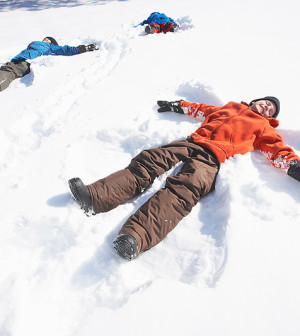- The Best Time of Day to Drink Bone Broth to Maximize Health Benefits
- 8 Ways to Increase Dopamine Naturally
- 7 Best Breads for Maintaining Stable Blood Sugar
- Gelatin vs. Collagen: Which is Best for Skin, Nails, and Joints?
- The Long-Term Effects of Daily Turmeric Supplements on Liver Health
- Could Your Grocery Store Meat Be Causing Recurring UTIs?
- Are You Making This Expensive Thermostat Error This Winter?
- Recognizing the Signs of Hypothyroidism
- 10 Strategies to Overcome Insomnia
- Could Artificial Sweeteners Be Aging the Brain Faster?
Bystander CPR Helps Some Kids Survive Cardiac Arrest

More American children who suffer cardiac arrest at home or in public places are getting CPR from bystanders, a new study finds.
Kids who receive bystander CPR have better survival rates, the researchers said.
But, the study didn’t find an impact on infant survival rates.
“This lack of impact on infants suggests the need for a public health strategy to improve the use of bystander CPR,” study lead author Dr. Maryam Naim said in an American Heart Association news release.
Naim is an assistant professor of anesthesiology and critical care at the Children’s Hospital of Philadelphia at the University of Pennsylvania.
Cardiac arrest is the sudden loss of heart function in someone who may or may not have diagnosed heart disease.
Each year, more than 420,000 emergency medical services-assessed out-of-hospital cardiac arrests occur in the United States, according to the heart association.
The researchers behind the new study looked at data from nearly 2,200 youngsters (infants to age 18) who had an out-of-hospital cardiac arrest in 29 large cities between January 2013 and December 2014.
About half (49 percent) of the children received bystander CPR, which is higher than in previous studies. Those who received bystander CPR had an 11 percent chance of surviving with little or no brain damage. Youngsters who didn’t receive bystander CPR had only a 7 percent chance of survival with little or no brain damage, the study found.
Eighty-six percent of the cardiac arrests occurred at home. And, most bystander CPR was performed by a family member. Bystander CPR was more common for white children (60 percent) than for Hispanic children (44 percent) or black children (42 percent), the study revealed.
Most cases of cardiac arrest occurred in infants — 62 percent. But, bystander CPR had no effect on survival in those cases, the study showed.
The findings were to be presented Tueday at the American Heart Association’s annual meeting, in Orlando. Fla. Study results presented at meetings are usually viewed as preliminary until they’ve been published in a peer-reviewed journal.
More information
The U.S. National Heart, Lung, and Blood Institute has more about cardiac arrest.
Source: HealthDay
Copyright © 2026 HealthDay. All rights reserved.










